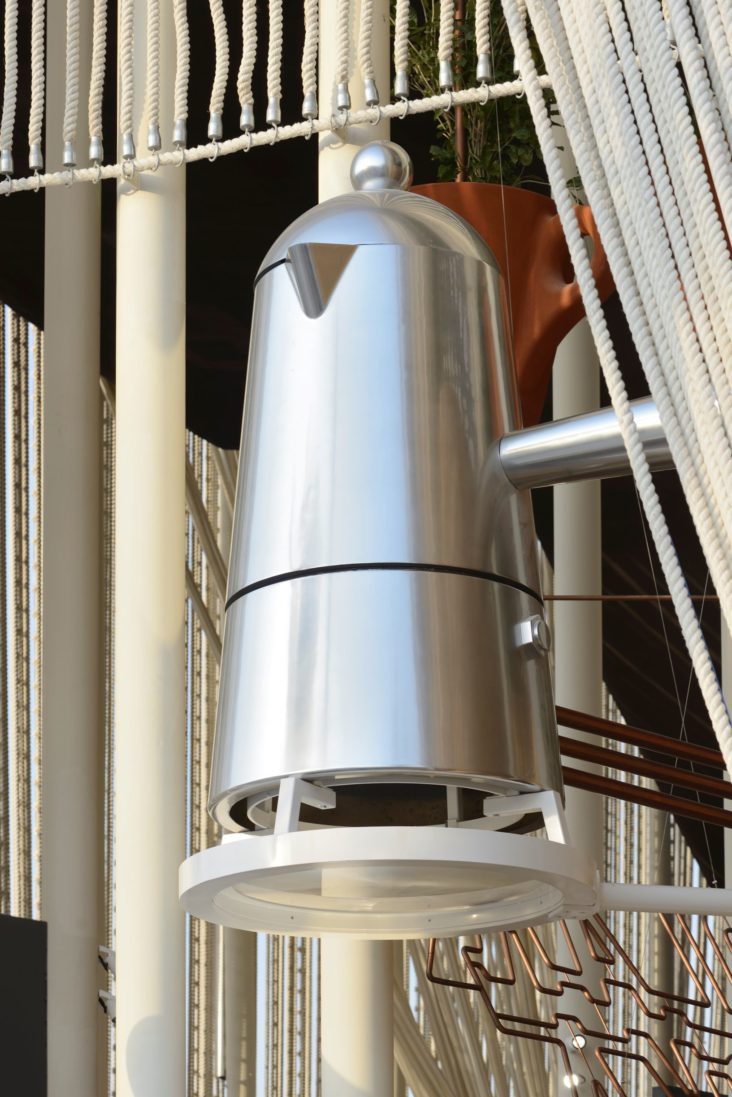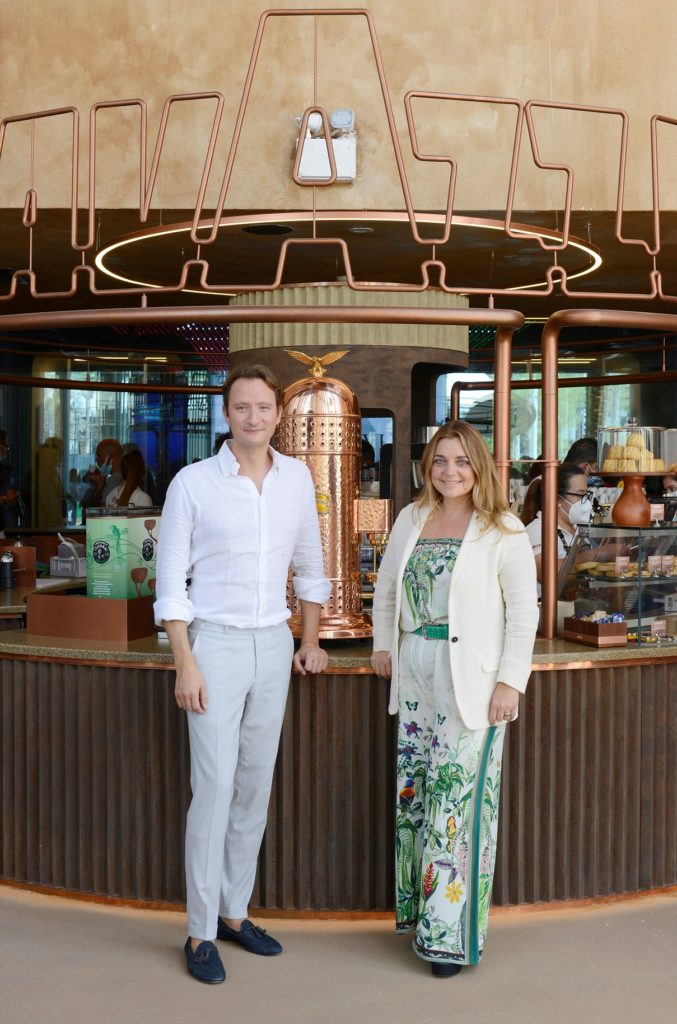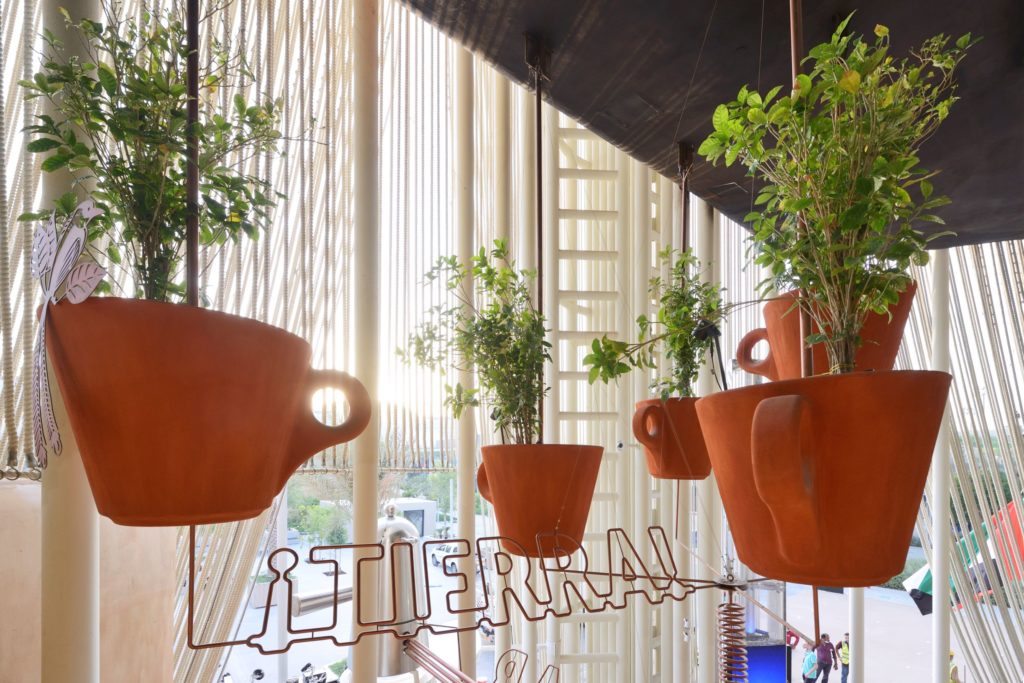Solar Moka: At The Lavazza Coffee Shop, The Experience Of Sustainable Coffee Made With The Sun

A new coffee shop will welcome visitors to the Italy Pavilion at Expo Dubai 2020. More than just a place for meeting and sharing, the project by Carlo Ratti Associati is designed to create an immersive coffee experience through every stage in its life cycle, from bean to cup. It will do so by taking enthusiasts by the hand and leading them through a narrative made up of aromas, innovation and sustainability, as well as by appealing to their imagination and senses with the Solar Moka, a people-friendly installation powered by solar energy. The Solar Moka showcases the production process as a continuous cycle, combining natural and artificial elements, revealing the potential reuse of every component, and underscoring the importance of a transparent procurement chain.
A combination of special finishes and materials offers visitors a multi-sensory experience involving taste, in the form of the finest Italian coffee, hearing and smell, thanks to the sounds of grinding and the coffee aromas released, and touch, through contact with the organic materials used for the decor, such as the coffee beans set in resin featured on the work top. The project also reminds us of the relationship between coffee production and local communities that represents the beating heart of this special story.
A story in three chapters
COFFEE PLANTS// A series of medium-sized coffee plants are suspended out of the earth to show visitors the initial stage in the production process. The plants will be cultivated throughout the period of the World Expo event and, when ready, their beans will enter the production cycle.
SOLAR MOKA // Inspired by the climate in the Middle East, the Solar Moka incorporates a series of mirrors that follow the sun to produce heat. The concept of the 2.2-metre-high moka pays tribute to the iconic Carmencitamoka pot, designed by Italian designer Marco Zanuso for Lavazza in 1979. This innovative technology reduces energy consumption in the subsequent stages of coffee preparation. When heated, the water runs through copper pipes surrounding the cafeteria, revealing the process of preparation in a multi-sensory experience.
COUNTERTOP MADE WITH COFFEE // The inspiration provided by the circular economy can also be seen in the design of the counter, which is made with reused coffee grounds and has a tactile surface top made from coffee beans and resin.




